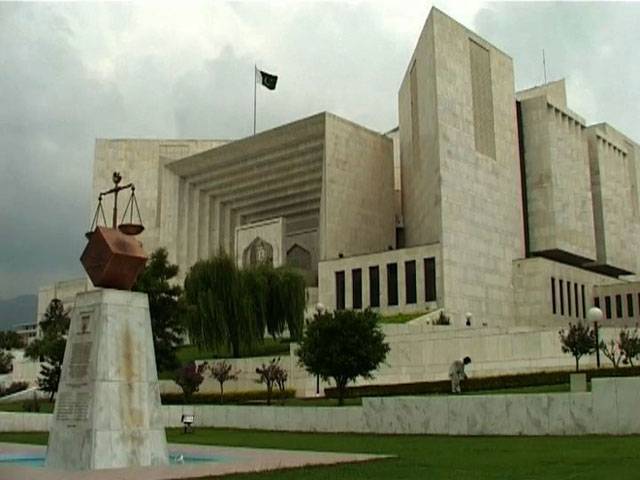ISLAMABAD - The Supreme Court yesterday sought proposals for providing shelter to the homeless people in view of articles 9, 14 and 25 read with article 38-D of the constitution.
A three-judge bench, headed by Chief Justice Jawwad S Khawaja, hearing a constitutional petition filed by activists of Awami Workers Party and affectees of Sector I-11 slum, maintained its earlier order, restraining the Capital development Authority (CDA) from taking action against slums in the federal capital.
The bench directed the secretary Law & Justice Commission of Pakistan to convene a meeting with the representatives of federal government, provincial law officers, and Abid Hassan Manto, the counsel for petitioners, and submit proposals regarding enforcement of article 9, 14 and 25 read with article 38 of the constitution. “The proposals should be realistic by ensuring the constitutional obligations in view of article 5 of the constitution,” it added. The bench also sought assistance from a retired civil servant, Tasneem Ahmed Siddiqui on development of shelters for the slum dwellers. The court gave him two weeks to submit proposals on alternative policy for providing residence to the affectees. The Capital Development Authority (CDA) has been asked to provide him (Siddiqui) office and other facilities to complete its task. Siddiqui, who has 15 years experience of developing slums, informed the court that though he was CSP officer, he had studied slums and developed many in Sindh, particularly in Karachi. He told that there are 30-35 per cent slums all over the country and the government has plans about them but they are not being implemented.
The court asked the CDA to treat all the citizens living in Islamabad equally. The bench questioned how those persons who were carrying sticks and pelted police teams with stones in their defence during the operation in I-11 could be termed as terrorists.
Justice Qazi Faez Isa said: “How the persons who have batons and stones in their hands due of frustration could be considered terrorists?” Justice Dost asked whether the law enforcement agencies had recovered any explosive from there.
Justice Jawwad observed that the CDA is taking no action against those whom the plots were given for cultivation of vegetables and setting up poultry farms, but they converted them in big bungalows, marriage halls and offices. “There should be no selective treatment,” he remarked.
The CDA and the Islamabad police on 30-07-15 launched operation in Sector I-11 slum to evacuate dweller from there.
Justice Dost Muhammad observed that all the political parties in their manifestos have programmes for providing shelter to the poor, but they are taking no practical steps in that regard. He asked whether I-11 slum was established overnight.
Justice Jawwad said the Afghans who came to Pakistan were kept in camps but the government for its own citizens has no plan and, instead of relocating them, is threatening them. He said people in I-11 slums had been living for almost 32 years.
The director enforcement CDA informed that the CDA had facilitated the dwellers and also provided them transport facility. Justice Jawwad asked, “I am curious and just want to know where the people were shifted?” But the director could not reply.
Justice Dost asked from the CDA counsel whether they have record how many suckling babies, children and teenagers and women were in the slum. The court was informed that 5,000 persons were on the electoral rolls and had polled their votes in 3 to 4 general elections.
The hearing of the case was adjourned till Monday (September 7).
Friday, April 26, 2024
SC seeks proposals to provide shelter to the homeless
I-11 slum demolition case

Vloggers Shiraz, Muskan cross 2m followers on Instagram
12:27 AM | April 26, 2024
Achakzai stresses collective wisdom to address country's crises
12:27 AM | April 26, 2024
IHC puts off cipher case hearing until April 30
12:26 AM | April 26, 2024
Nawaz Sharif convenes PML-N Punjab meeting tomorrow
12:25 AM | April 26, 2024
ECP reinstates PTI-backed MNA from NA-81 Gujranwala
12:24 AM | April 26, 2024
Academic Uprising
April 24, 2024
Cooperation Momentum
April 24, 2024
Facing Reality
April 24, 2024
Absent Academia
April 23, 2024
Murree’s Redemption
April 23, 2024
Ending animal suffering
April 25, 2024
AI governance
April 25, 2024
AI concerns
April 25, 2024
Population paradox
April 24, 2024
Unveiling differences
April 24, 2024
ePaper - Nawaiwaqt
Advertisement
Nawaiwaqt Group | Copyright © 2024





